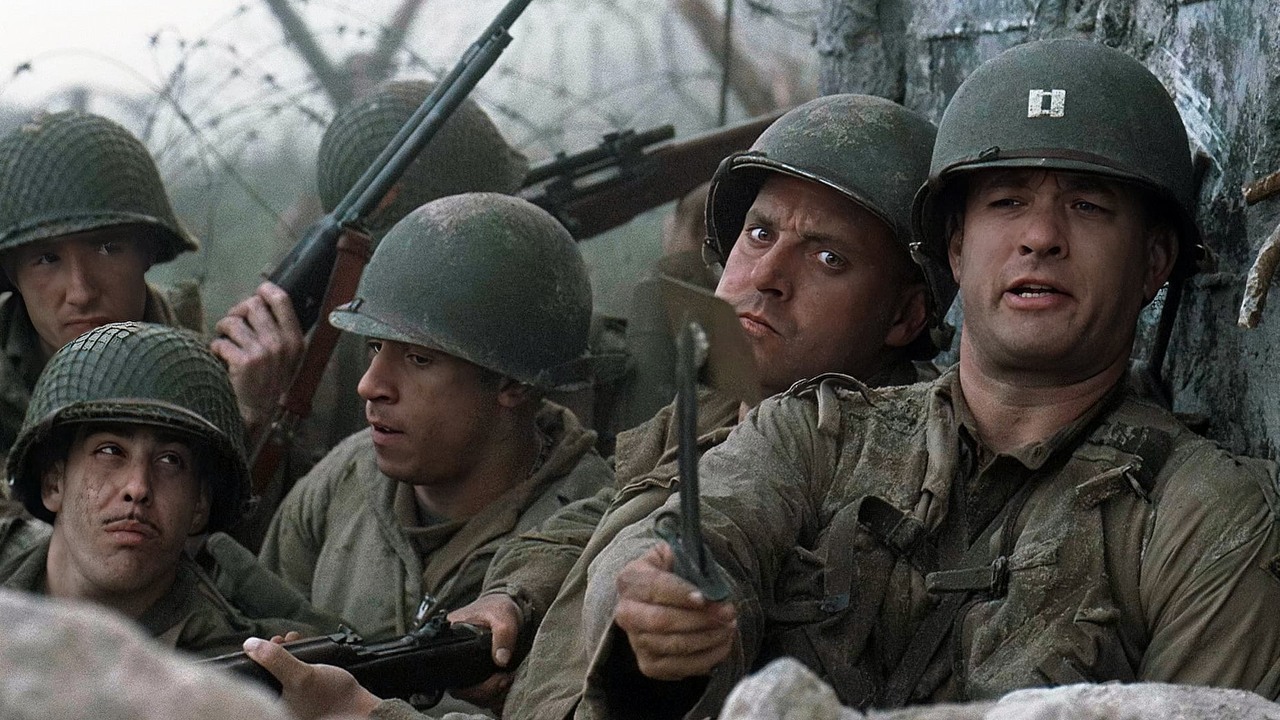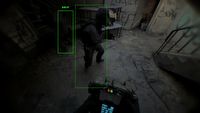“20 Years From Now, You'll Look Back On This And Wished To God You Had Finished It”. Tom Hanks Stopped Actors From Fleeing Steven Spielberg's War Movie
Preparing for Saving Private Ryan was a difficult experience for the cast, which almost led them to quit. They were stopped from doing so by Tom Hanks.

Although many actors would give up a lot to be able to appear in a Steven Spielberg film, there was a time when a group of artists considered quitting. This occurred more than 25 years ago during work on Saving Private Ryan. The director's desire for as much realism as possible led to this situation. He sent the cast to a training camp under the guidance of former soldier and legendary war film advisor Dale Dye. The actors don't have the best memories of the week-long intensive training, during which they were supposed to gain infantry experience without having to go to war.
This is how the training program was mentioned by Dye, according to Yahoo! News.
They did physical training hard every day and I ran them through the same sort of syllabus that would have been given to basic infantrymen back in 1943/4. Because I had to compress of all that into three or four days, they worked day and night.
It doesn't sound like a pleasant experience and it wasn't. The actors didn't like Spielberg's idea, and it wasn't the process they wanted to undertake to prepare for their roles. This was pointed out by Adam Goldberg, who played Private Mellish.
We were forced to be “method”, whether we wanted to or not. The only way I could get through it was to shut myself down and become this soldier.
Not only Goldberg didn’t understand the necessity of becoming method actors, Tom Sizemore (Sergeant Horvath) also questioned why, having to play soldiers, they also had to become them. Edward Burns (Private Reiben) suggested in the Empire article that this was his worst experience.
We get there, we set up our tents and it starts raining and it doesn't stop raining for seven days. It is 30 degrees at night and you are in a soaking wet tent, a soaking wet uniform, with a soaking wet blanket wrapped around you.
Dale Dye himself recalls that the actors weren’t happy with the training and he heard them talking about considering resigning. So why didn't they do so? Especially since there was a vote three days later, during which the actors decided that they were quitting. What helped was the intervention of Tom Hanks, who spoke up to Spielberg, informed him of the situation and asked him what he was going to do about it. The director, however, told him to make the decision himself. And he did.
Hanks decided to go back to his fellow cast members and convinced them to stay, Dye said. The trainer also decided to talk to the actors to explain to them why they shouldn’t give up.
He [Hanks] said, “Look, we’re only going to get one shot at this and we want to get it right and I think we ought to stay and we ought to gut it out”. I stood out there in the rain and said essentially what Tom had said, that you owe it to these people you’re representing on film to get this right. And in order to get it right, you’ve got to experience some of what they experienced.
Vin Diesel mentioned how Hanks' speech worked for them, because of the fact, that despite his star status and the fact that he would lose the least by resigning, he decided to stay and complete the demanding training, which also gave him a hard time.
He said, “Guys, 20 years from now, you'll look back on this and wished to God you had finished it”. To this day, we are all extremely grateful that we did.
After this conversation, the crisis was resolved, the actors completed their training and later starred in a film that was a huge success. And the shared suffering during the training resulted in a bond between them, which contributed to how good the movie was. Today, meanwhile, the artists recall those times as both the worst and the best, but some of them agree that they did the right thing by staying and not giving up.
- The author of Reacher on why the Prime Video adaptation is superior to Tom Cruise's: “No novelist would ever have chosen anything else”
- „It depresses me.” Benedict Cumberbatch is afraid of AI and believes that because of it „we are in danger”
- Stranger Things 5 will see the most violent death in the entire series. Until now, the Duffer brothers have „refrained” from showing such violence in the Netflix hit
0

Author: Edyta Jastrzebska
A graduate of journalism and social communication as well as cultural studies. She started at Gamepressure.com as one of the newspeople in the films department. Currently she oversees the Gamepressure movie&TV newsroom. She excels in the field of film and television, both in reality-based and fantasy themes. Keeps up with industry trends, but in her free time she prefers to watch less known titles. Has a complicated relationship with popular ones, which is why she only gets convinced about many of them when the hype around them subsides. Loves to spend her evenings not only watching movies, series, reading books and playing video games, but also playing text RPGs, which she has been into for several years.
Latest News
- End of remote work and 60 hours a week. Demo of Naughty Dog's new game was born amid a crunch atmosphere
- She's the new Lara Croft, but she still lives in fear. Trauma after Perfect Dark changed the actress' approach to the industry
- „A lot has become lost in translation.” Swen Vincke suggests that the scandal surrounding Divinity is a big misunderstanding
- Stuck in development limbo for years, ARK 2 is now planned for 2028
- Few people know about it, but it's an RPG mixing Dark Souls and NieR that has received excellent reviews on Steam, and its first DLC will be released soon

